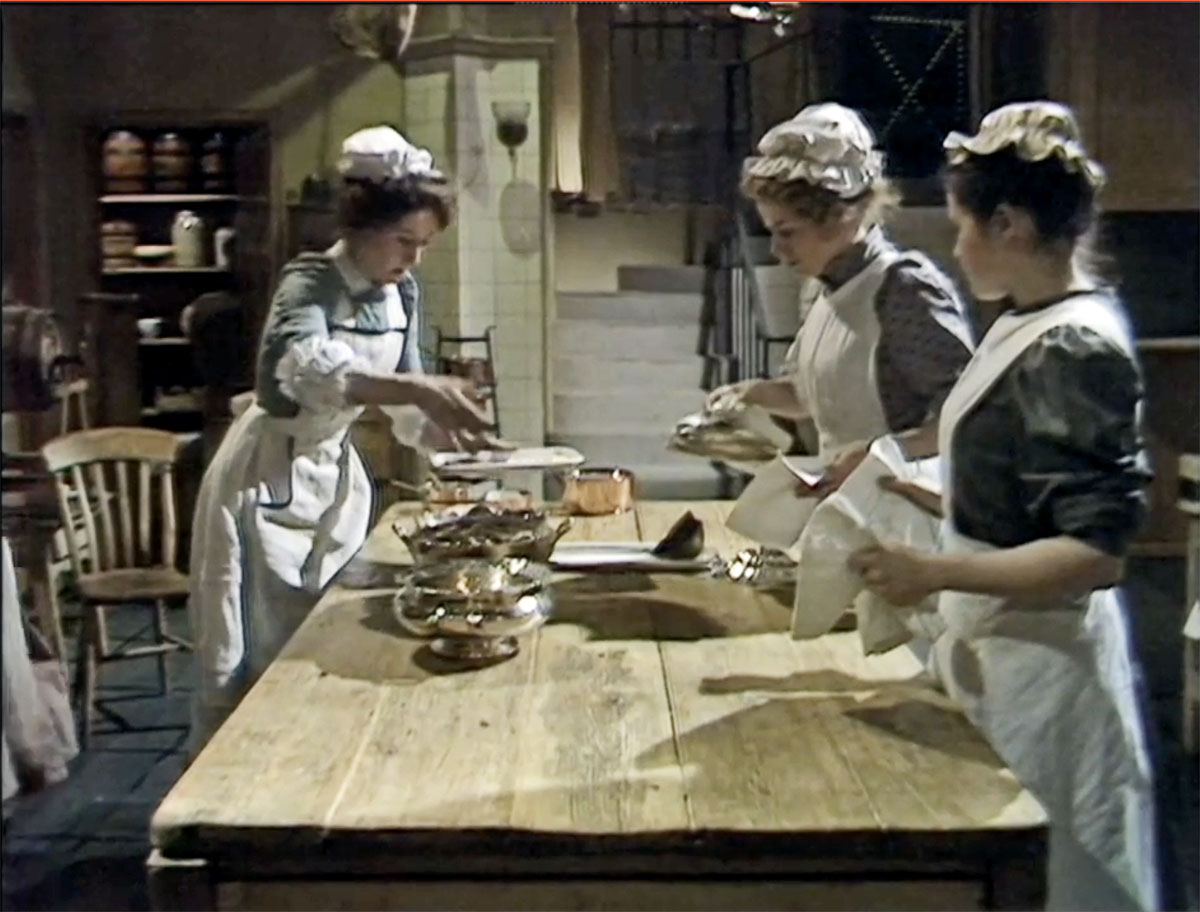
In 1971, when Alistair Cooke began hosting Masterpiece Theater on PBS, the quality of American television went up several notches. Though series such as Upstairs, Downstairs were enormously popular, this wasn’t television for the American masses, who still preferred the networks to PBS. It was an elite sort of thing for liberals and the literati. A new generation of Anglophiles (including me) came on line. And it wasn’t long before reduced-rate airlines flying the new Boeing 747’s started the trend that we now call the democratization of air travel. New York to London was a hot ticket. I made my first crossing in 1984.
The Duchess of Duke Street was created by John Hawkesworth, the producer of Upstairs, Downstairs. But Louisa Leyton, the main character, is not a real duchess. She is a low-born Englishwoman whose great ambition is to become the best cook in England. The story starts in 1900. The character is based on Rosa Lewis, who owned the Cavendish Hotel in London and who died in 1952.
Of the BBC series of that vintage, I still rate the original Poldark (1975) as the best. I’ll never forget how my socially insecure Welsh friend (now deceased), then starting out as a solicitor in London, referred to Winston Graham as a “middle brow” writer. In the U.S., Winston Graham was highbrow. He was unknown in the U.S. until Poldark and Masterpiece Theater. Soon Graham was selling books in America, but I had to buy my first Winston Graham at a bookshop in London.
Amazon Prime now has the full Duchess of Duke Street series for streaming. It’s a fine social drama, but it’s a shame that it isn’t a bit more of a cooking show. There are tantalizing scenes in the kitchen with glimpses of what they’re cooking, with gleaming copper pots and all sorts of hand-powered cooking equipment. They appear to actually be cooking during the show at times.
The Duchess of Duke Street is a kind of period piece within a period piece. It takes us back to 1900, but it also takes us back to 1975.
